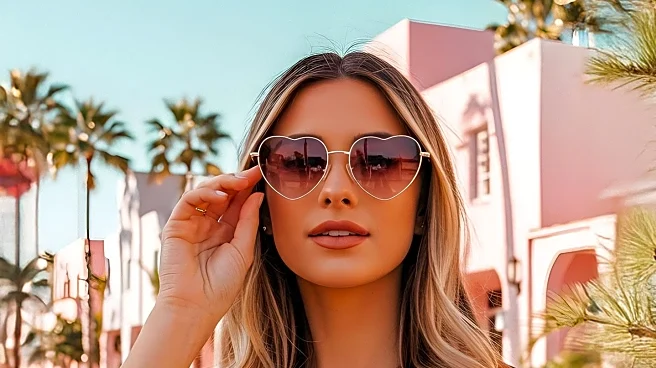What's Happening?
Becca Bloom, an American entrepreneur and influencer with 4.7 million TikTok followers, is facing criticism for flaunting her wealth in a recent unboxing video. The video, which has garnered 14.8 million views, showcases Bloom surrounded by luxury Hermès products, including shirts, vests, purses, and coats. Critics have labeled her content as 'tone deaf' and 'unethical,' drawing comparisons to Marie Antoinette. The backlash highlights the growing trend of influencers displaying their wealth, known as 'RichTok,' which some argue distorts viewers' perceptions of normalcy. Despite the allure of influencer careers, many still work full-time jobs, with only half having received payment from brands.
Why It's Important?
The criticism of Becca Bloom underscores the societal impact of the influencer economy, where the display of wealth can exacerbate perceptions of inequality. This trend is significant as it reflects shifting career aspirations, with nearly half of young consumers willing to leave traditional jobs for influencer roles. The allure of self-employment and brand partnerships is strong, yet the financial reality for many influencers remains challenging. The backlash against Bloom's content may prompt discussions on ethical content creation and the responsibilities of influencers in shaping public perceptions.
What's Next?
The ongoing debate around influencer content and wealth display may lead to increased scrutiny of social media platforms and their role in promoting ethical standards. Influencers like Bloom might face pressure to adjust their content strategies to align with public sentiment. Additionally, brands may reconsider their partnerships with influencers who face public backlash, potentially impacting the influencer marketing industry.
Beyond the Headlines
The backlash against Bloom's content highlights broader cultural and ethical questions about wealth disparity and the role of social media in perpetuating unrealistic lifestyle standards. This situation may prompt discussions on the responsibilities of influencers in promoting social awareness and the potential need for regulatory measures in the influencer economy.








